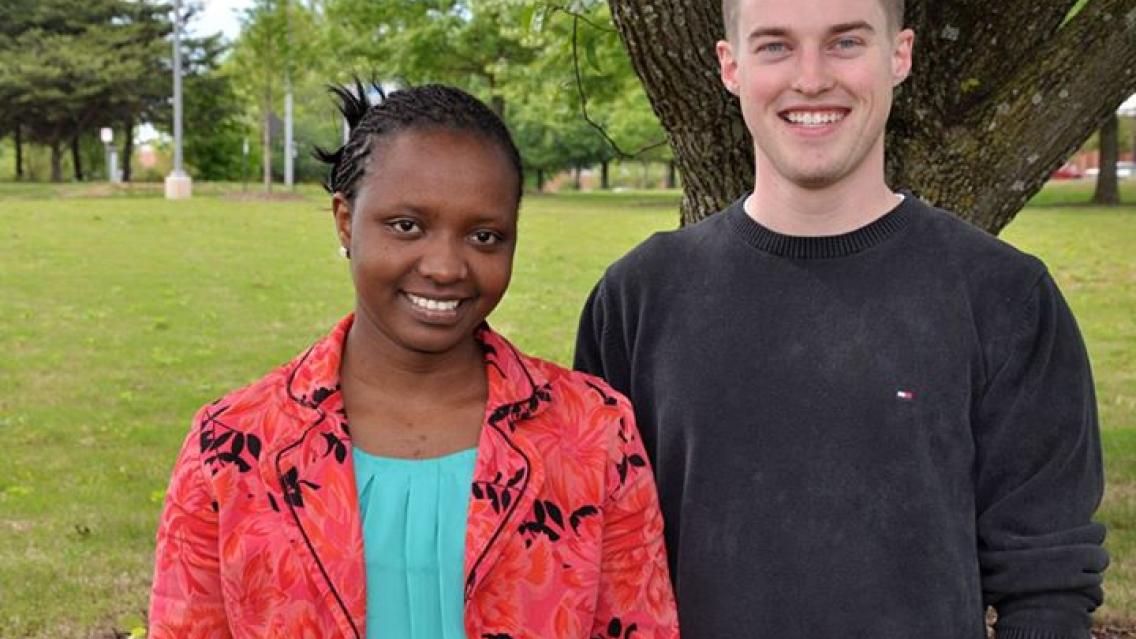Susan Malaso Wins UAHuntsville Poster Contest

Susan Malaso Kotikot, an Earth System Science graduate student at the University of Alabama in Huntsville and a graduate research assistant at SERVIR, has claimed first prize for her submission to the inaugural College of Science Research Horizons Day poster contest.
According to Dave Cook, coordinator of student research programs for UAH’s Office of Academic Affairs, students were asked to explain their research projects to faculty and the general public using only simple posters and a 3-minute elevator pitch.
A committee of three faculty members from different departments served as judges for the voluntary and highly competitive event. Malaso’s poster depicted her research on river discharge as affected by precipitation, temperature, and soil characteristics within the Tana watershed region of Kenya. Malaso’s poster topic was inspired by a class project from last semester. Born and raised into the Maasai community at Sintakara Village, Narok County, in Kenya's Rift Valley Province, Malaso is well aware of the effects that water has on day-to-day life in the region. Malaso furthers, "I have always wanted a better life; having to walk long distances in search of water was not fun. Looking back now, I know it’s a blessing and with hard work, anyone can achieve."
Malaso is a highly accomplished individual who moved to the United States to further her education in Earth System Science and join the team at the SERVIR Coordination Office. Susan became familiar with SERVIR through doing a practicum at the Nairobi-based Regional Centre for Mapping of Resources for Development (RCMRD), the host organization in Africa for the NASA/USAID SERVIR project (see article for further information). Malaso was also a My Community Our Earth (MyCOE)/SERVIR fellow studying GIS and remote sensing. In fact, her project, Application of GIS and remote sensing to frost risk mapping for improving agricultural productivity, won an Esri award.
Malaso began the Master’s degree program in August 2014 in addition to working part time at the SERVIR Coordination office and hopes to graduate by the end of 2016. She states, “Earth system science is not only about GIS and remote sensing. It is a broad field that has so far equipped me with geospatial knowledge and techniques to understand and analyze everyday environmental concerns greatly complementing my bachelor’s degree in environmental planning and management. I am so happy to be able to use my field of study in real life applications here at SERVIR.”
Her future plans after graduation include gaining more experience in a professional setting and then going on to earn her Ph.D. Malaso expands, “I want a job where I can use the skills that I am learning, grow, and get as much exposure as I can by working on challenging topics.”

